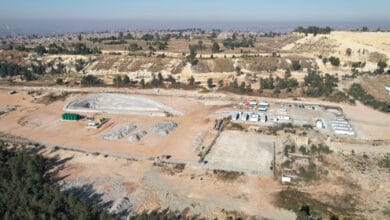BHP Group Ltd. has reported higher annual earnings and record copper and iron ore output, but warned that the global economy faces a patchy outlook, with growth slowing but commodity demand holding firm in Asia.
The world’s biggest mining company by market value said underlying profit attributable to shareholders rose 14% to $10.2 billion in the year to 30 June, supported by strong operational performance and tight cost control.
Underlying earnings before interest, tax, depreciation and amortisation came in at $26 billion, equivalent to a margin of 53%.
Mike Henry, chief executive, said: “Against a backdrop of global uncertainty, this strong performance has led to robust financial outcomes and reflects the resilience of BHP’s business and strategy.”
The company declared a final dividend of 60 cents, bringing total cash returns to $5.6 billion for the year.
Copper output topped 2 million tonnes for the first time, up 28% over three years, helped by higher volumes at its Escondida mine in Chile and its operations in South Australia.
Iron ore production from its Western Australia Iron Ore division hit a record 290 million tonnes, reinforcing its position as the world’s lowest-cost major producer.
The miner said it expected to spend about $11 billion a year on capital projects and exploration over the next two years, before moderating to $10 billion annually from 2028.
Key investments include the Jansen potash mine in Canada, due to start production in 2027, and a multi-decade copper development at Vicuña in Argentina.
BHP noted that global growth is likely to ease to about 3% in the near term as trade policies shift.
Chinese demand for copper was stronger than expected in the past year, while iron ore demand proved resilient thanks to infrastructure spending and manufacturing activity.
Steelmaking coal prices softened because of oversupply, though new blast furnace capacity in Asia is expected to lend support.
CEO Henry said BHP remained “confident in the long-term fundamentals of steelmaking materials, copper and fertilisers, which are critical to global growth, urbanisation and the energy transition.”
BHP, one of the largest corporate taxpayers in both Australia and Chile, said it paid $10.4 billion to governments in the year, down from $11.2 billion in 2024, as its effective tax rate rose.









